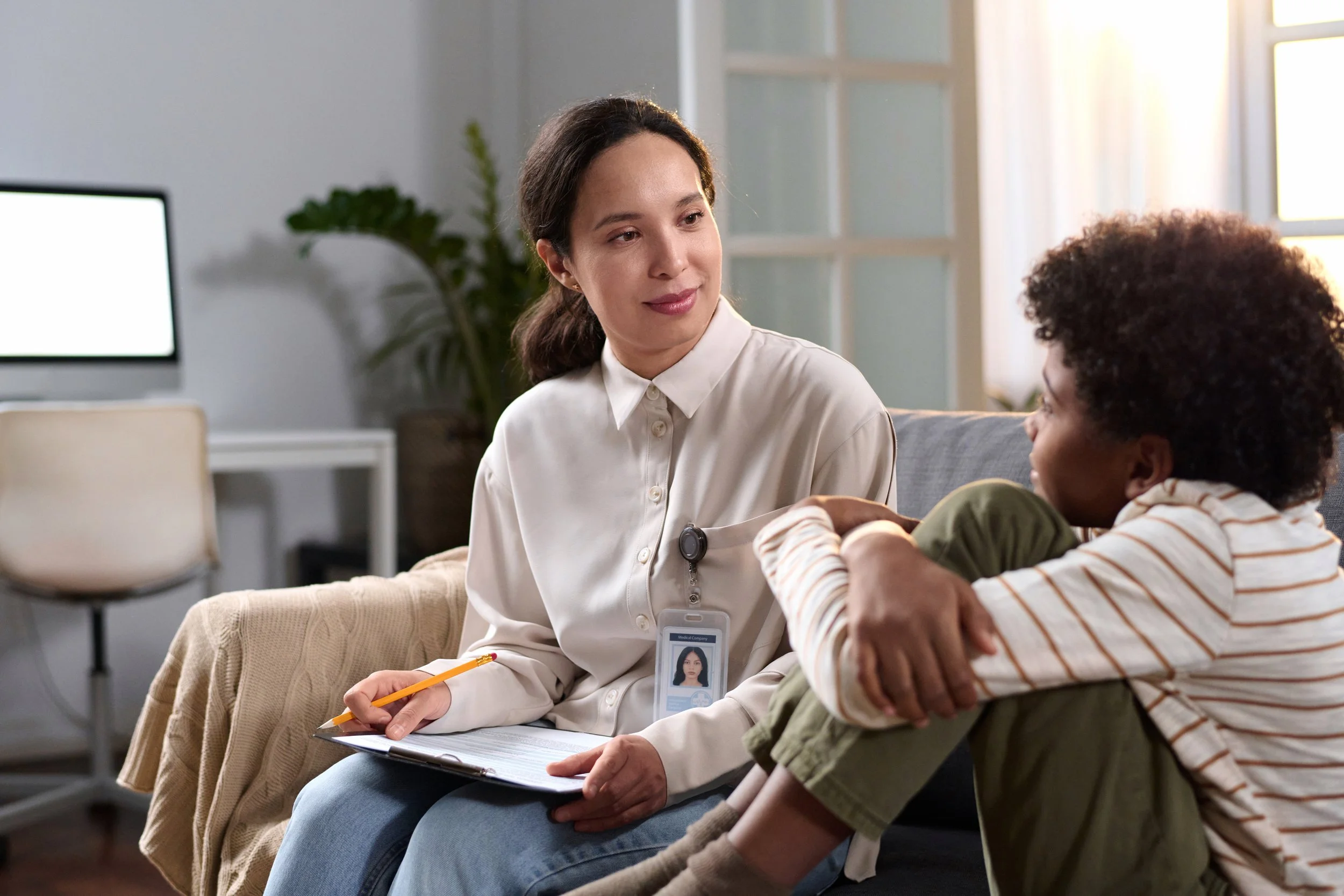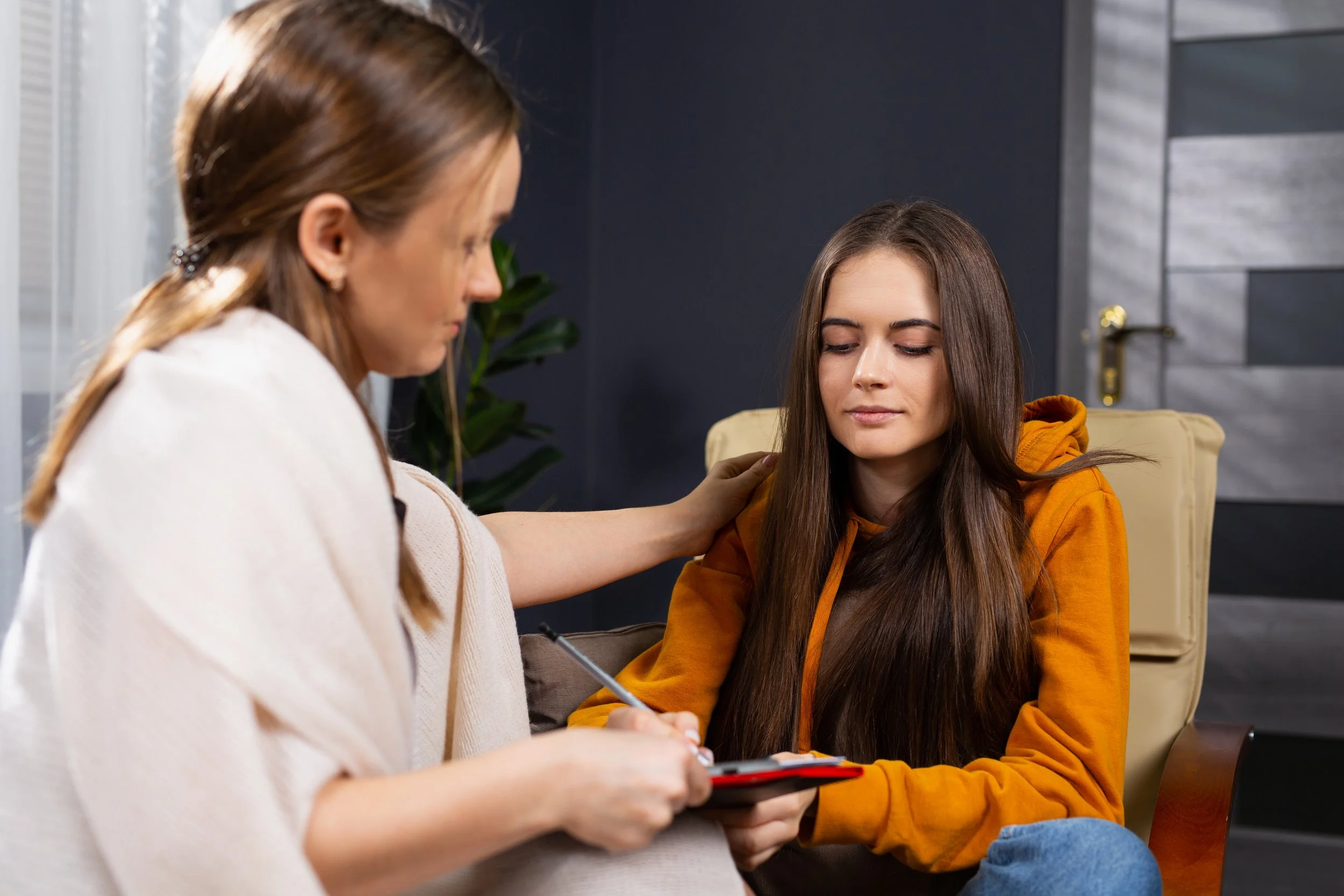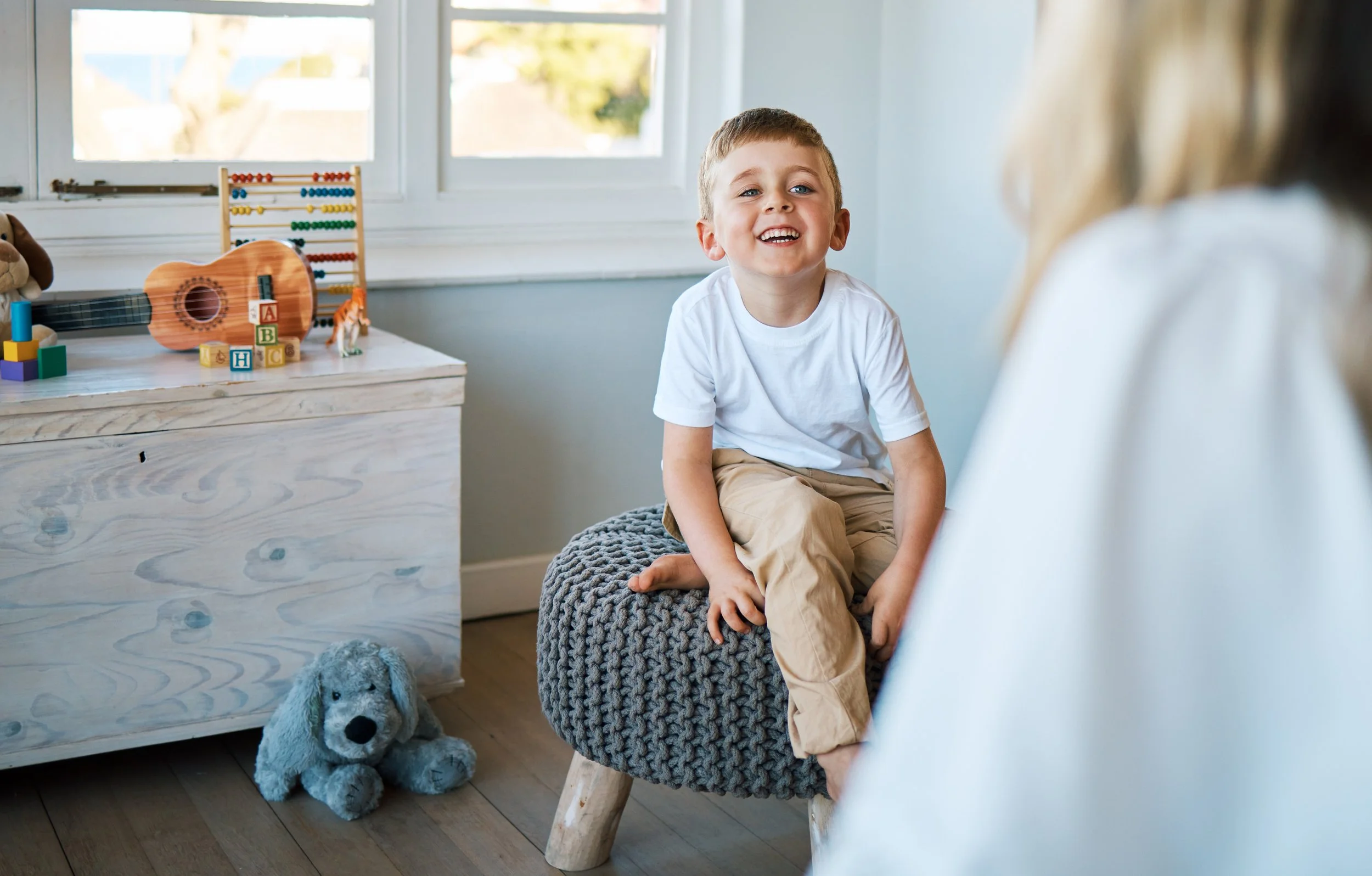Kids & Teens
About 1 in 4 U.S. children under 18 struggles with anxiety or related disorders, which often go unseen and cause isolation. At CABT, we provide compassionate, evidence-based, personalized treatments to help children and families regain confidence, connection, and relief.
What to Look For
Repetitive behaviors like handwashing, tapping, arranging items, or excessively checking homework, locks, or safety.
Constantly asking for reassurance or repeating the same questions.
Intense reactions such as tantrums, crying, panic, avoiding school, or difficulty separating from parents.
Mood or social changes, including sadness, low energy, withdrawal from friends, arguments with family, or trouble with daily routines.
About 4.1 million adolescents aged 12 to 17 experienced at least one major depressive episode in 2020.
Our Unique Approach
YOUR ROADMAP TO WELLNESS
01 EXPOSURE AND RESPONSE PREVENTION (ERP)
ERP is a gold-standard, science-backed treatment that helps anxious kids and teens gradually face fears and resist compulsions, building confidence and reducing anxiety symptoms over time.
02 STRUCTURED PARENTING FOR ANXIOUS CHILDHOOD EMOTIONS (SPACE)
A parent-only treatment that equips caregivers to support anxious children by changing family responses that unintentionally maintain anxiety, helping kids face fears with gradual support.
03 INTERPERSONAL PSYCHOTHERAPY FOR ADOLESCENTS (IPT-A)
An evidence-based therapy for teen depression that focuses on improving relationships—the central part of a teen’s life—through collaborative, goal-oriented work that boosts mood and interpersonal skills.
04 COGNITIVE BEHAVIOR THERAPY (CBT) FOR KIDS AND FAMILIES
Scientifically-informed treatments that specifically target the way kids think and behave to help reduce anxiety and improve mood. Parents are involved to learn how to reduce accommodating behaviors, strengthen their child’s coping skills, and create a supportive home environment that encourages progress between therapy sessions.
Find Your Child’s Perfect Match
Browse our clinicians’ bios to find a therapist whose experience and approach align with your goals.
FAQs
-
It can be difficult for anyone to talk about things that they’re struggling with, and this may be particularly true for kids. Our expert staff are used to working with children and families that have reservations about therapy. Starting at the very first meeting, we work with the child and the caregivers to make them feel comfortable, heard, and understood so that we can determine the best plan going forward. Often, that will include working directly with the child, but in some cases, will include working directly with parents to help their child via parent coaching.
-
In short, if your gut tells you something is off with your child, check it out (hyperlink to “How can we help?” section). If your child’s mood or anxiety are making it difficult for them to go to school, keep up with assignments, spend time with friends, complete daily tasks around the house, or engage in their hobbies, we strongly recommend seeking help from an expert. Our experienced, well-trained, clinicians will carefully evaluate the seriousness of your child’s symptoms, and if there is cause for concern, what could be the most effective treatments for them.
-
Anxiety and worry often interfere with learning and school performance. Some children may perseverate on trying to do schoolwork perfectly while others may be distracted by their anxiety during class. Still others may feel so anxious while in school that they frequently avoid going altogether, potentially missing deadlines and exams. When a child is able to work with their therapist to address these and other kinds of worries, their school performance often improves as the extra burden of anxiety is lifted.
-
For many children, CBT treatment alone (without medication) will help children learn to manage their anxious symptoms. In some cases, medication may be considered as an adjunct to treatment. While medication may help your child be more willing to face their fears, it is unlikely to alleviate their fears completely. Thus, it functions more as an adjunct to therapy, allowing your child to maximize their gains from their exposure-based treatment. If your child is unable to tolerate the distress associated with doing exposures or hits a plateau in their progress, your therapist may work with you to consider the benefits of medication. Our therapists do not prescribe medication but do work closely with psychiatrists in the community to coordinate your child’s care and help your child make the strongest gains towards their treatment goals.
-
Our staff is focused on providing time-limited evidence-based treatment. Our goal is to help teach your children skills that will help them gain control of their symptoms and continue to manage these symptoms over time. While treatment typically lasts between 10-25 sessions, this will vary on a case by case basis. Our philosophy is that children should be doing “kid things.” When their treatment goals are resolved, we like to send kids on their way…so that they can enjoy being kids










